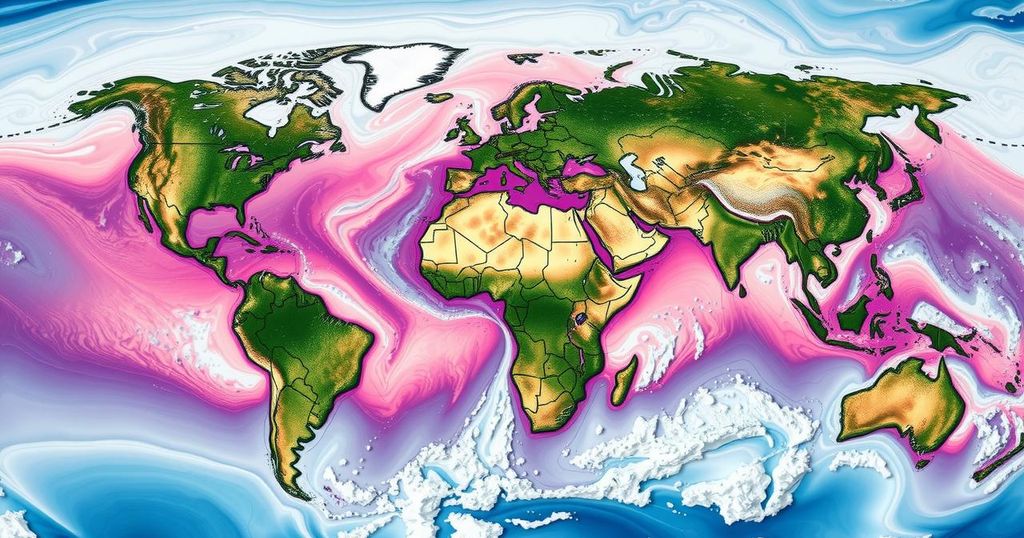Exploring Cutting-Edge Climate Science: Insights from the AGU Meeting
The AGU meeting this week revealed urgent climate questions, highlighting unprecedented global heat levels, the application of AI in predicting weather extremes, and ethical debates surrounding geoengineering. Scientists continue grappling with the implications of their research while progress in solar energy projects faces bureaucratic hurdles. Overall, the discourse points to a need for immediate climate action and innovative solutions.
At the heart of scientific innovation, the annual American Geophysical Union meeting drew over 25,000 scientists, united by a thirst for knowledge about our changing planet. Within the vast convention center, discussions ranged from the alarming rise in global temperatures—expected to culminate in this year as the hottest on record—to the promising intersection of artificial intelligence and climate science. Amid chatter of lunching on bland sandwiches and sipping dull coffee, critical questions emerged about why Earth’s heat levels soared unexpectedly, the potential of AI in revealing patterns of extreme weather, and the contentious topic of geoengineering as a last-resort method to combat climate change.
Conference attendees packed rooms to explore the unsettling reality that fewer clouds last year allowed more solar energy to accumulate and heat our atmosphere. Even global experts, such as Robert Rohde from Berkeley Earth, acknowledged the perplexing inadequacy of current models to fully explain the phenomena behind this record-breaking warmth. Meanwhile, as machine learning tools evolve, researchers are employing these technologies to glean insights from rare weather events, generating hypothetical data scenarios akin to a perpetual replay of climatic conditions.
However, amidst technological advancements, scientists expressed reticence towards geoengineering. Despite being considered a last-ditch effort to mitigate climate impacts, expert voices like Alan Robock’s clarified their apprehensions. “I don’t want to be here,” he stated, emphasizing that the true solution lies in a collective commitment to forsaking fossil fuels altogether.
On a different front, the U.S. solar industry confronts logistical barriers, with Pine Gate Renewables triumphantly advancing a massive solar energy project in Oregon that aims to reshape renewable energy’s landscape. But navigating public hearings and intricate regulations required a significant investment of time—two and a half years just to secure approval. As solar power is projected to surge, straining existing infrastructure could impede the nation’s path to a net-zero electric grid by 2035.
The confluence of innovative thought, rigorous scientific inquiry, and ongoing challenges demonstrates how climate science continues to evolve. As researchers parse through intricate data and innovative solutions, it’s clear that urgent action remains necessary to safeguard the future of our planet.
The article delves into the latest findings and discussions from the American Geophysical Union’s annual meeting, an event that scrutinizes the state of Earth’s climate through diverse scientific lenses. Key issues assessed include the unprecedented rise in global temperatures, the expanding role of artificial intelligence in climate models, and debates around geoengineering possibilities, reflecting both innovations and moral quandaries confronting the scientific community today.
This year’s AGU meeting illuminated urgent questions surrounding climate change, emphasizing the unexpected heat surge, the promise of AI in weather research, and the complex discussion on geoengineering. As scientists strive to unravel climate mysteries while promoting sustainable solutions, the journey toward understanding our planet continues, urging all to rethink approaches toward fossil fuels and renewable energy initiatives. The path forward requires collaboration and open dialogue as humanity seeks to confront the realities of a warming world and spark meaningful action.
Original Source: www.nytimes.com




Post Comment